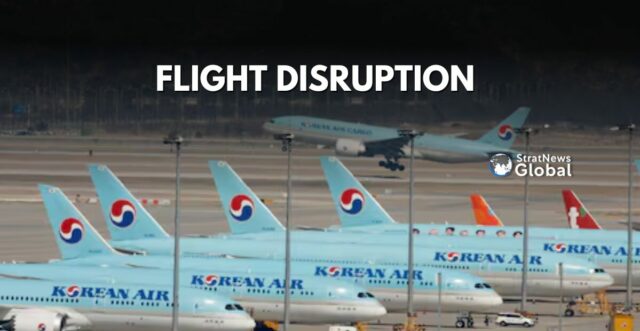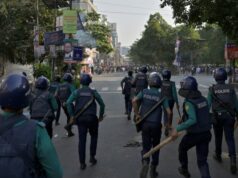Takeoffs and landings at South Korea’s Incheon International Airport were disrupted for about three hours early on Wednesday due to balloons launched by North Korea. The balloons, filled with refuse, caused the temporary shutdown of the airport’s three runways, according to an airport spokesperson.
Incident Details
A balloon landed on the tarmac near passenger Terminal 2, prompting the closure of the runways. North Korea has been flying balloons carrying trash into South Korea since late May, with hundreds landing across the border. Several balloons were spotted within the airport boundaries, causing the disruption of both domestic and international flights between 1.46 am and 4.44 am. The runways have since reopened.
Flight Disruptions
The incident occurred during a time of low flight volume. FlightRadar24 data indicated that eight arriving cargo and passenger flights were diverted to South Korea’s Cheongju or Jeju airports, while a China Cargo freighter from Shanghai was diverted to Yantai, China. Several other flights experienced delays in both landings and departures.
North Korean Retaliation
North Korea has claimed the balloons are in retaliation for propaganda campaigns by North Korean defectors and activists in South Korea. These activists regularly send balloons carrying food, medicine, money and leaflets criticising North Korean leaders. Items found in the North Korean balloons include articles printed with Hello Kitty characters, worn clothing and soil containing traces of human faeces and parasites.
Response From South Korea
South Korea’s military reported that about 100 balloons had fallen between Tuesday and Wednesday, mostly in the capital Seoul and the surrounding Gyeonggi province. Most of these balloons carried scraps of paper.
The disruption at Incheon International Airport highlights the ongoing tensions between North and South Korea. As both sides engage in provocative actions, the impacts are felt in civilian domains, such as air travel, illustrating the broader implications of the conflict.
With inputs from Reuters
Research Associate at StratNewsGlobal, A keen observer of #China and Foreign Affairs. Writer, Weibo Trends, Analyst.
Twitter: @resham_sng





